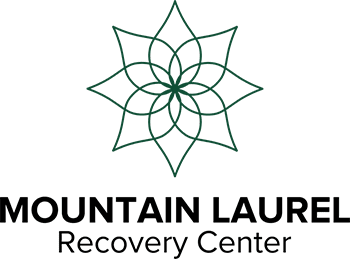Substance abuse is a tragic fact of life in modern society, but substance abuse affecting unborn children is even more tragic.

Fortunately, if a mother gets the necessary help in time (before she gets pregnant), she can avoid these complications.
The Numbers:
In the United States,
- 20% of pregnant women (about 1 million) smoke cigarettes
- 12% of women drink alcohol during pregnancy
- 6% of women (about 225,000) use an illicit drug at least once while pregnant
- From 2005 – 2009, smoking tobacco during pregnancy is believed to have caused an estimated 1,015 infant deaths per year.
A pregnant woman who uses and abuses alcohol and/or drugs regularly during pregnancy puts the baby at risk of developing neonatal abstinence syndrome (NAS) or withdrawal after birth. Studies show that this condition can occur when a fetus is exposed to alcohol, caffeine, opioids, and some prescription sedatives through its mother. Other long-term effects (sometimes fatal) of drug abuse during pregnancy include:
- Premature birth
- Birth defects
- Small head size
- Low birth weight
- Developmental delays
- Learning disabilities
- Memory problems
- Poor emotional control
- Sudden Infant Death Syndrome (SIDS)
Effects of Prenatal Drug Exposure:
- Nicotine – it has long been established that smoking during pregnancy has direct negative consequences for the fetus, the newborn, and the person he or she grows into. The nicotine and carbon monoxide from tobacco smoke interfere with the oxygen supply to the fetus. Nicotine concentrations in the blood, amniotic fluid, and breast milk expose the fetus to toxins that increase the risks for stillbirth, infant death, SIDS, preterm birth, slow fetal growth, low birth weight, and respiratory problems.
- Alcohol – is one of the most widely abused substances during pregnancy and also the most studied and documented as far as its effects on fetal development goes. There are no known safe levels of alcohol consumption during pregnancy. Even small amounts can cause fetal damage, interfering with the development of the brain and other critical organs.
Fetal Alcohol Spectrum Disorders (FASD) is at the top of the list of known causes of developmental disabilities in newborn babies. FASD stems from a woman’s heavy drinking or alcoholism during pregnancy. FASDs include growth deficiencies while in the womb and after birth; slow or delayed development; intellectual difficulties/challenges; behavioral problems; and distinct changes in facial features like small jaw, thin upper lip, and flattened mid-face.
The range of behavioral, cognitive, and developmental damage caused by prenatal exposure to alcohol can appear at anytime during childhood and last for the duration of a person’s life.
- Ecstasy (MDMA) – a stimulant that belongs to the amphetamine family of drugs with mind-altering effects. Fetal exposure to MDMA from maternal use can lead to altered brain development during the 1st trimester, which later results in changes in newborn behavior and delayed development of the fetus’ motor functions for the duration of the pregnancy.
- Cocaine, Marijuana, Heroin, Methamphetamine – along with other illicit drugs have all been associated with many different fetal developmental problems, though deeper research needs to be done to make causal connections. Cocaine and marijuana for example have been implicated in many cases of impaired language and learning skills, impaired attention span and behavioral problems, all of which ultimately result in poor performance in school. Methamphetamine has been suspect in restricted fetal growth, decreased arousal, and poor quality of movements in newborns. Heroin (opiates) use during pregnancy has been associated with low birth weight, but not much else is known until more research is done.
There may seem to be quite a lot of information floating around on the internet, but the full extent of the effects of prenatal drug exposure on a child is not known. Extensive studies have yet to be undertaken to fully understand the magnitude of the problems brought about by drug use during pregnancy to the child, the family, and our society.
This is why it’s imperative for women addicted to anything to get help before they become pregnant. And fortunately for them — whether they are addicted to something legal like cigarettes or one of the myriad illicit drugs out there — they have many outlets they can go to for help. By spreading the word about the dangers of prenatal drug use, we can all help get an already existing human being off drugs and save a future human being a potential life of hardship.
For more information about Mountain Laurel Recovery Center, contact us anytime at (888) 909-7989.
We’re here to help.
Lena Butler is a health blogger and customer service representative for TestCountry, a San Diego based point of service diagnostic test service provider that offers a wide range of laboratory and instant drug and general health testing kits.
